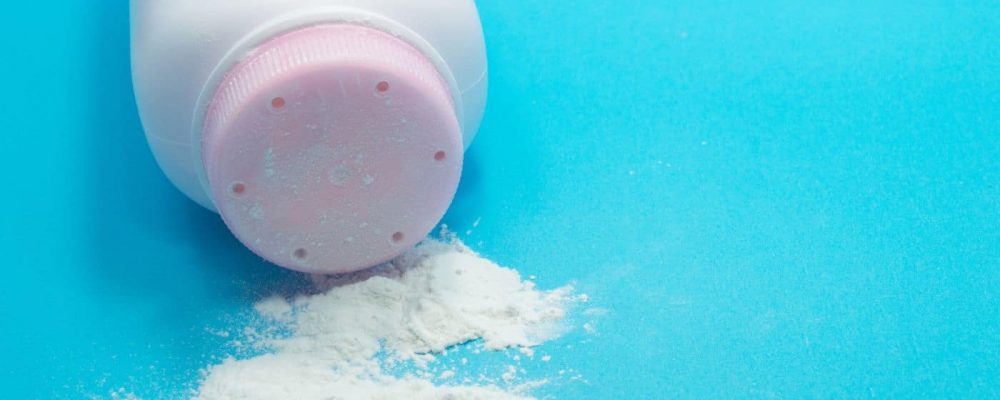Home Practice Areas
Defective Products & Product Liability Lawyers
Talcum Powder Lawsuit & Cancer Claims
Talcum Powder Lawsuit & Cancer Claims
This page has been written, edited, and reviewed by a team of legal writers following our comprehensive editorial guidelines. This page was approved by Founding Partner, Terry Crouppen who has more than 40 years of legal experience as a personal injury attorney. Our last modified date shows when this page was last reviewed.
This page has been written, edited, and reviewed by a team of legal writers following our comprehensive editorial guidelines. This page was approved by Founding Partner, Terry Crouppen who has more than 40 years of legal experience as a personal injury attorney. Our last modified date shows when this page was last reviewed.
- Last Modified:
- May 22, 2025
Talc is a mineral composed primarily of magnesium, silicon, and oxygen. When talc is ground into powder, it can absorb moisture, reduce friction, and help prevent rashes. Brands such as Johnson’s Baby Powder and Shower to Shower contain talc.
When these products are used for feminine personal hygiene, talc particles can travel into the ovaries or fallopian tubes and remain there for many years. These particles can cause inflammation and lead to the growth of ovarian cancer cells.
Failure to Warn of Ovarian Cancer Risk
Studies done as far back as the 1970s have cited a possible association between the use of talcum powder and the increased risk of ovarian cancer. More recently, The International Agency for Research on Cancer classifies the use of talc powder in the genital area as “possibly carcinogenic to humans.” One review of data reported in the medical journal Cancer Prevention Research indicated that women who regularly use talcum powder for feminine hygiene might have increased their risk of ovarian cancer by 41%. Despite numerous studies, talcum powder remained on the market without any warning from the manufacturer.
Does Talcum Powder Cause Cancer
Scientists have been examining the potential link between ovarian cancer and talcum powder use for decades. Although talc is a naturally occurring mineral, it can be very difficult for the human body to remove talc particles, which may result in inflammation and the formation of cancerous tumors.
The United States Food and Drug Administration (FDA) has ongoing research into the potential risks involved with talcum powder in cosmetics, particularly related to ovarian and cervical cancer. One of the key questions the FDA is examining is the potential that talc has been contaminated with asbestos. Questions about possible asbestos contamination have been raised for more than 40 years. Asbestos is a known carcinogen that has been linked to lung cancer. Talcum powder may become contaminated with some amounts of asbestos during the talc mining process since both talc and asbestos are minerals that are often found close to each other in the earth. While Johnson & Johnson claim that Johnson’s Baby Powder is asbestos-free, Reuters has reported that at least three tests conducted by different labs found asbestos in Johnson’s talc products. Despite these tests results, Reuters notes that Johnson & Johnson told FDA regulators that asbestos had not been “detected in any sample” of its talc.
Currently, both the National Cancer Institute and the American Cancer Society consider talc use near the genital area as a “risk factor” for ovarian cancer. Despite this possible link, Johnson & Johnson and other talc powder and shower product manufacturers have not placed warnings or disclaimers about this risk on their products.

Lawsuits Against Johnson & Johnson
In just the last few years, numerous talc lawsuits and class action procedures have been filed alleging that Johnson & Johnson’s talc products have caused lung cancer or ovarian cancer. On May 19, 2020, the New York Times reported that the company would discontinue selling talc-based baby powder in the face of nearly 20,000 talc lawsuits filed by patients. The company will continue selling its cornstarch-based products.
In February 2016, a jury in a talcum powder lawsuit in St. Louis City awarded $72 million in damages on Jacqueline Fox’s claim that the longtime use of Johnson & Johnson baby powder products contributed to the ovarian cancer that killed her. Jackie Fox’s family members argued in court that J&J knew, for years, about the increased risk of ovarian cancer due to using talcum powder and hid that information from the public. Ms. Fox died from her ovarian cancer, but not before claiming that her cancer was caused by J&J talcum powder products.
In April of 2016, a jury in a talcum powder lawsuit in St. Louis County ordered Johnson & Johnson to pay $55 million to a woman who said that her cancer was caused by longtime use of Johnson and Johnson baby powder products and shower products.
In October 2016, a jury in a Missouri cancer lawsuit ordered Johnson and Johnson to pay Deborah Giannecchini $70 million in damages. The jury decided that her frequent use of the company’s talcum powder products were the cause of her ovarian cancer. Ms. Giannechhini’s cancer diagnosis came three years ago after using Johnson & Johnson’s talc products for more than four decades.
In July 2018, 22 women were awarded a total of $4.7 billion in compensatory and punitive damages by a Missouri jury. In their ovarian cancer lawsuit, these women said that Johnson & Johnson failed to warn them about the risk of cancer associated with using their talc-based bath and body powder. All of the plaintiffs in this talcum powder case developed ovarian cancer. Most of these women had been regular users of Johnson & Johnson talcum powder as a perineal antiperspirant or deodorant. In November 2020, Bloomberg reported that Johnson & Johnson had lost an appeal in the case and would be required to pay compensatory damages of more than $2 billion.
In March 2019, an Alameda County, California jury agreed with Teresa Leavitt, who claimed that asbestos in Johnson & Johnson’s talcum products caused her mesothelioma. Ms. Leavitt was diagnosed with mesothelioma in August 2017 after using Johnson & Johnson talc-based hygiene products for more than three decades.
In October 2020, Bloomberg reported that “Johnson & Johnson has agreed to pay more than $100 million to resolve over 1,000 lawsuits blaming its baby powder for causing cancer.” The company still faces nearly 20,000 additional lawsuits.
Over the years, our team of product liability attorneys has helped the victims of a wide array of dangerous products. Some of the most tragic defective product cases are related to cosmetic products, including talc use. We help people who have suffered the side effects of dangerous products.
When you contact us to talk about your talcum powder case, our experienced product liability attorneys know what to do to provide the legal representation you or your loved ones need. Our law firm is dedicated to fighting for justice, and we have the track record to back it up with more than $1 billion won in personal injury cases.
FREE CASE EVALUATION

Get started with a free consultation with one of our skilled Personal Injury Lawyers today.
Get Help From a Talcum Powder Lawyer at Brown & Crouppen Law Firm
If you or a loved one regularly used talc products and developed ovarian cancer, it may be best to consult an attorney. For more than 40 years, the personal injury lawyers at the law firm of Brown & Crouppen have helped the victims of dangerous products get the justice they deserve.
Getting started is simple. Call 888-801-4736 for a free consultation, or tell us about your case with our Free Case Review form. And remember, there’s no upfront cost to you since we work on a contingency fee basis. In other words, if you don’t get paid, we don’t get paid.
FREE CASE EVALUATION
Our Results
TESTIMONIALS

- Last Modified:
- May 22, 2025
SCHEDULE A FREE CONSULTATION
